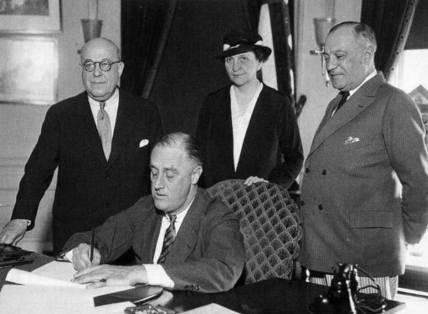 Protecting Our Right to Collectively BargainUSW Core Values Educational Series – Issue 1Our union understood right from the beginning that we couldn’t rely solely on negotiations to better our members’ lives. We would also have to push our government to act. Elected officials could help us by passing legislation to make us safer on the job, help us secure pensions, get better working hours, and more. A legislative gain meant one more thing we didn’t have to bargain over. We could then focus on even greater goals in our negotiations.We know to be powerful, we have to work for laws and policies that support us. Our core issues include: collective bargaining, safety and health, job security (trade), domestic economic issues (infrastructure investment, domestic procurement and policies that bring fairness to the workplace), health care, and retirement security. These are the fights that help us build family-supportive, good jobs and strong communities. They reflect our values and a vision of the America that works for workers.Over the next few weeks, Rapid Response will be doing a series of educational pieces around these core issues and how we work to protect them. This is the first of that series.Collective Bargaining, Our Right to Organize, and an Anti-Union NLRBOur legally-protected right to organize and collectively bargain – Franklin Delano Roosevelt signed the National Labor Relations Act (NLRA) in 1935, creating a clear legal pathway for workers to join together to form labor unions and bargain collectively for better wages and working conditions. It also established the National Labor Relations Board (NLRB). The NLRB is tasked with overseeing union elections and handling labor rights violations. It is governed by a five-person board (one member’s term expires each year) and a General Counsel (four-year term), all of whom are appointed by the President with the consent of the Senate.Anti-union NLRB appointees – Two recently-appointed Board members have long histories working for corporations to advance anti-worker and anti-union decisions. Bill Emanuel was a shareholder at Littler Mendelson and Chairman John Ring was a partner at Morgan Lewis, two of the largest union avoidance firms in the US. The Board takes their guidance from its General Counsel, Peter Robb.A General Counsel with a history of breaking unions – Robb, a notorious anti-union crusader, has worked for a series of union-busting law firms and, in 1981, was instrumental in President Reagan’s firing of striking air traffic controllers, one of the most notorious labor actions in U.S. history. Almost immediately upon assuming his role as general counsel, Robb issued a memo outlining the categories of cases issued by the NLRB under the prior Administration, for which he may seek to overturn precedent. The majority of those cases were wins for unions. Protecting Our Right to Collectively BargainUSW Core Values Educational Series – Issue 1Our union understood right from the beginning that we couldn’t rely solely on negotiations to better our members’ lives. We would also have to push our government to act. Elected officials could help us by passing legislation to make us safer on the job, help us secure pensions, get better working hours, and more. A legislative gain meant one more thing we didn’t have to bargain over. We could then focus on even greater goals in our negotiations.We know to be powerful, we have to work for laws and policies that support us. Our core issues include: collective bargaining, safety and health, job security (trade), domestic economic issues (infrastructure investment, domestic procurement and policies that bring fairness to the workplace), health care, and retirement security. These are the fights that help us build family-supportive, good jobs and strong communities. They reflect our values and a vision of the America that works for workers.Over the next few weeks, Rapid Response will be doing a series of educational pieces around these core issues and how we work to protect them. This is the first of that series.Collective Bargaining, Our Right to Organize, and an Anti-Union NLRBOur legally-protected right to organize and collectively bargain – Franklin Delano Roosevelt signed the National Labor Relations Act (NLRA) in 1935, creating a clear legal pathway for workers to join together to form labor unions and bargain collectively for better wages and working conditions. It also established the National Labor Relations Board (NLRB). The NLRB is tasked with overseeing union elections and handling labor rights violations. It is governed by a five-person board (one member’s term expires each year) and a General Counsel (four-year term), all of whom are appointed by the President with the consent of the Senate.Anti-union NLRB appointees – Two recently-appointed Board members have long histories working for corporations to advance anti-worker and anti-union decisions. Bill Emanuel was a shareholder at Littler Mendelson and Chairman John Ring was a partner at Morgan Lewis, two of the largest union avoidance firms in the US. The Board takes their guidance from its General Counsel, Peter Robb.A General Counsel with a history of breaking unions – Robb, a notorious anti-union crusader, has worked for a series of union-busting law firms and, in 1981, was instrumental in President Reagan’s firing of striking air traffic controllers, one of the most notorious labor actions in U.S. history. Almost immediately upon assuming his role as general counsel, Robb issued a memo outlining the categories of cases issued by the NLRB under the prior Administration, for which he may seek to overturn precedent. The majority of those cases were wins for unions. |